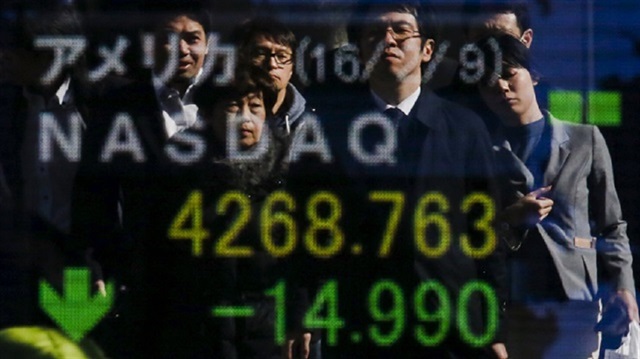
On Thursday, IMF Managing Director Christine Lagarde warned countries against engaging in currency and trade wars, which would hurt global growth as well as "innocent bystander" nations, including emerging markets that supply commodities
Some of these countries, including Indonesia, the host of the IMF and World Bank meetings, are already struggling to contain capital outflows prompted by higher U.S. interests rates.
Fears that rates could spike sharply higher - and the international trade tensions - touched off a searing sell-off in global stock markets over the past week.
European Central Bank Governor Mario Draghi warned on Saturday that a "snap back" in rates and a sharp repricing of asset prices were the biggest risks to the economic outlook.
Blaming the Sino-U.S. trade dispute, the IMF this week cut global growth forecasts for 2018 and 2019.
"The recovery is increasingly uneven, and some previously identified risks have partially materialised," the IMFC communique said, referring to threatened tariffs and outflow pressures.
The United States and China have slapped tit-for-tat tariffs on hundreds of billions of dollars of each other's goods over the past few months, sparked by U.S. President Donald Trump's demands for sweeping changes to China's intellectual property, industrial subsidy and trade policies.
Trump has frequently accused China of cheapening its currency to gain a trade advantage, claims Beijing has consistently rejected. The U.S. Treasury is due to release a key report on currency manipulation next week.
Despite reassurances from China's central bank on currency policy, some analysts say yuan weakness will persist, as there is no clear path towards resolving the U.S.-China trade dispute and higher tariff rates loom in January.
"Clients in China remain unwilling to call a bottom in the yuan," NatWest Markets head of foreign exchange strategy Mansoor Mohi-uddin said in a research note. "This in turn makes us cautious about calling for a peak in the dollar globally."
Further Federal Reserve rate hikes are expected to underpin the dollar's strength and increase capital outflow pressures on emerging market economies
But Bank of Japan Governor Haruhiko Kuroda said the Fed's rate hikes were "basically good" for the world economy, though he was more cautious about escalating trade tensions due to their "rather unusual" scale.





